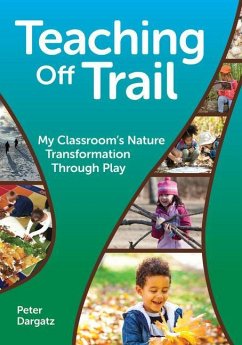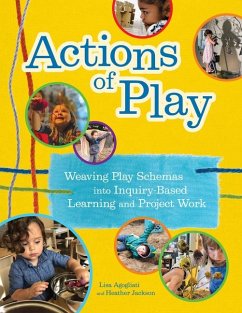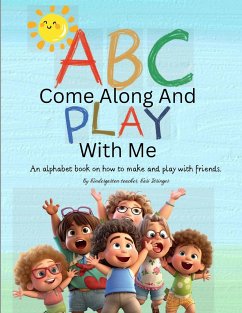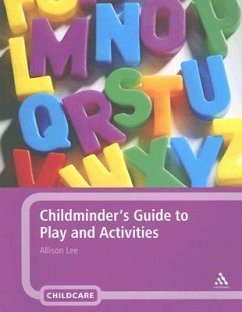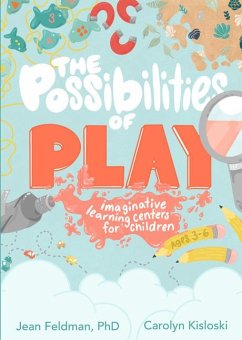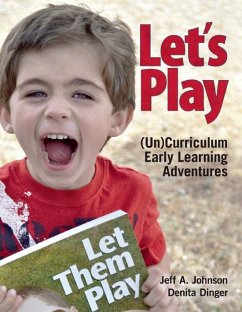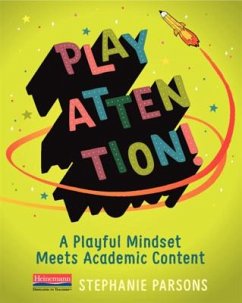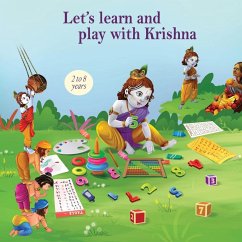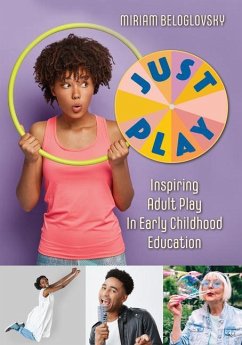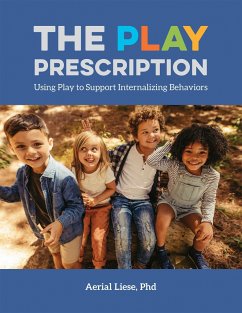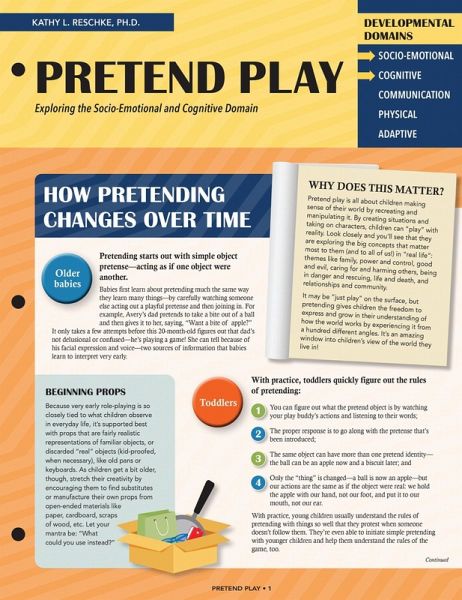
Pretend Play
Exploring the Socio-Emotional and Cognitive Domains
Versandkostenfrei!
Versandfertig in über 4 Wochen
13,99 €
inkl. MwSt.

PAYBACK Punkte
7 °P sammeln!
Fifteen Quick Reference Guides on individual child development topics (0-5) that cover every developmental domain rather than just the usual academic or more familiar/usual topics. This intention is why topics like movement and eating are included. Another reason is to reinforce that they all affect each other in the real life of a child - if she's hungry (or tired), she can't focus as well on counting or managing her emotions, etc. The developmental domains are a helpful label for these resources, but it will depend on how they are used. If you intend to use the domain labels as tags to searc...
Fifteen Quick Reference Guides on individual child development topics (0-5) that cover every developmental domain rather than just the usual academic or more familiar/usual topics. This intention is why topics like movement and eating are included. Another reason is to reinforce that they all affect each other in the real life of a child - if she's hungry (or tired), she can't focus as well on counting or managing her emotions, etc. The developmental domains are a helpful label for these resources, but it will depend on how they are used. If you intend to use the domain labels as tags to search by, for example, they could be useful. But in that case, a few of them have strong elements of two domains (pretend play, for example, has significant content about representational thinking as well as social relationships), and so would best be served if we could attach two domain labels. Even if they are just used as identifiers on each guide itself, being able to use more than one for some of them would be more helpful for the user to understand at a glance what will be covered. Developmental Domains: - Socio-emotional - The ability to form and sustain social relationships with others, and to recognize and express feelings and understand and respond to the feelings of others. - Cognitive - The ability to construct meaning through critical thinking, problem-solving, planning, decision-making, creativity, and symbolic thinking. - Language - The ability to articulate ideas and feelings and respond to the ideas and actions of others. - Physical - The development of fine and gross motor skills and the use and integration of the five senses. - Adaptive - The ability to connect learning experiences with life events and see the relevancy of this new knowledge.



